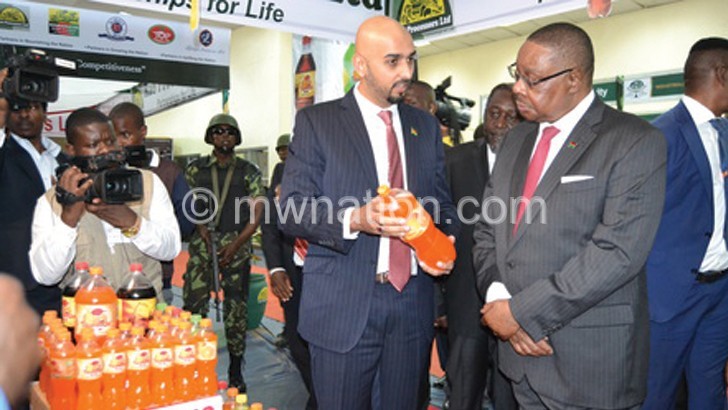‘Energy crisis hampers Industrial potential’
Inadequate supply of electricity continues to hinder the country’s industrialisation drive, Malawi Confederation of Chambers of Commerce and Industry (MCCCI) said yesterday.
MCCCI president Prince Kapondamgaga said this yesterday during the official launch of the 30th Malawi International Trade Fair (Mitf) at Chichiri Trade Fair Grounds in Blantyre.
The fair, being held under the theme Industrialisation: Basis for Trade Competitiveness, was officially opened by President Peter Mutharika.

Kapondamgaga said while the private sector advocates for trade and economic policies that will speed up industrialisation to propel exportation of high value processed goods, continued power outages is a barrier and use of alternative sources of energy has proven to be costly.
“As the country continues to experience power outages, use of alternative sources of energy such as diesel-powered generators has proven to be costly, pushing production costs upwards. Companies are now diverting a sizeable amount of their budget to finance generator sets and diesel while holding recruitment and salary increment plans at bay; hence, reducing the employment rates even further down.
“As the private sector, we are excited with the policy that allows private sector participation in power generation. However, progress seems to be slow due, sometimes, to lack of clarity on how this can be done, and at other times, lack or shortage of long-term finance at affordable rates,” he said.
Kapondamgaga urged government to ensure that the participation process of independent power producers (IPPs) is expedited, and not muffled, and that electricity outrages become history once and for all.
He said industrialisation thrives in a policy environment which is predictable and devoid of surprises.
Mutharika said his government wants to resolve the energy deficit once and for all by diversifying energy sources, which should also spur indistrialisation, observing that the private sector is an engine for growth.
“Our vision remains to make Malawi a producing and exporting nation. Our goal is to create a bigger private sector,” he said.
Minister of Industry, Trade and Tourism Henry Mussa, while observing that industrialisation has played a significant role in the development of industry, said low levels of intra-Africa trade is largely due to low levels of industrial development.
“Industrial development and diversification is, therefore, essential to enable African countries including Malawi, to trade among themselves and so benefit from free trade agreements,” he said.
The fair will closed on June 3 2018 and has attracted companies from India, Tanzania, Zimbabwe, Zambia, Ghana and Mozambique. n





